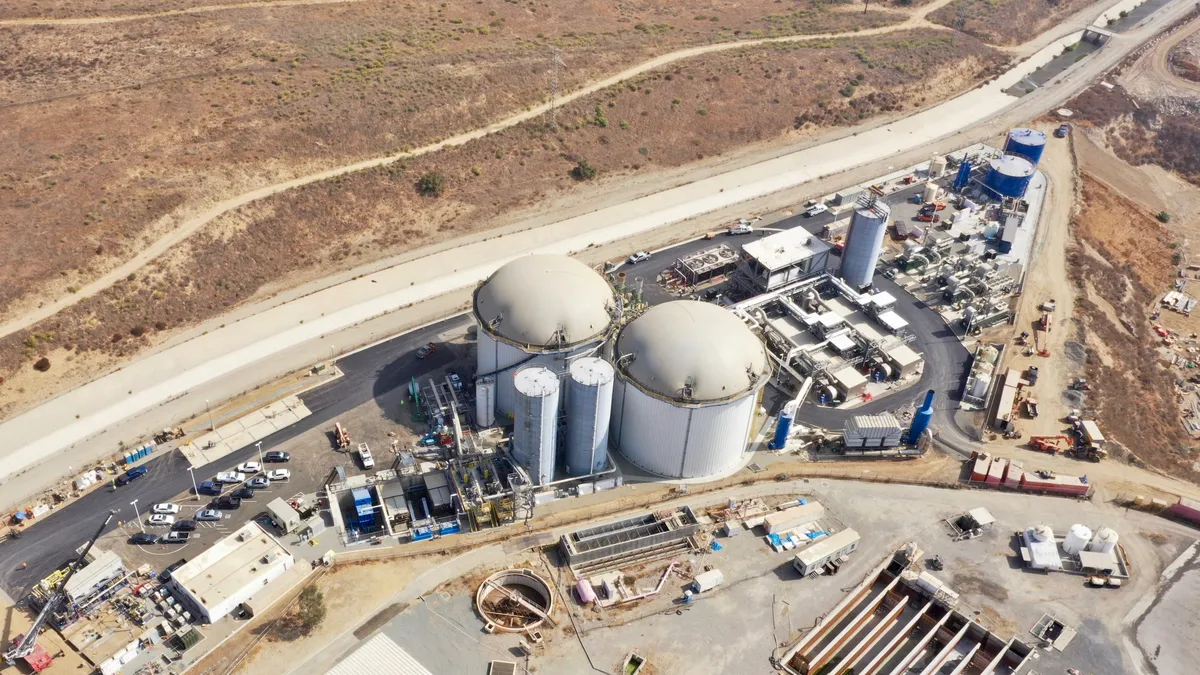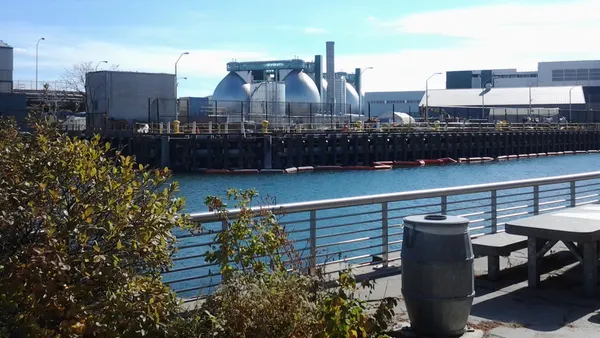California municipalities have walked a slow path to compliance with California’s SB 1383 organics law, which mandates diversion of the material. But an expected reset of the Los Angeles commercial waste zone system could improve business for organics processing in the area, according to Sevana Bioenergy President Steve Compton.
Sevana announced last week that it had acquired the Rialto Bioenergy Facility from Anaergia for $20 million through a bankruptcy auction. Compton now says he believes the facility, located about 50 miles east of Los Angeles, is positioned for success.
“We're fortunate to be able to step into the project with a clean balance sheet and have the time to bring it back up. We'll ramp up the feedstock as quickly as possible,” Compton said.
Los Angeles launched its recycLA program, which created the current system of waste zones, in 2017. It includes six haulers servicing 11 collection areas — all told, they collect from more than 66,000 accounts that include commercial and certain multifamily buildings.
But the contract system for the program makes organics collection service optional, something LA Sanitation and Environment plans to change in order to improve SB 1383 compliance. During contract extension negotiations, LASAN wanted organics collection to be bundled into haulers’ service prices, but the haulers in turn wanted the ability to increase rates over a 10-year contract extension. The divide pushed LASAN to end negotiations and move forward with plans for a new hauling RFP in March. Current contracts expire in 2027.
Compton said those moves will be favorable for facilities like Rialto because haulers’ bids will look better if they already had an agreement with an organics facility to process the collected materials. He also thinks Rialto will face limited competition for contracts, as there are few digesters or composting facilities nearby with available capacity.
“If compost is their only option, it's a long way outside the [Los Angeles] basin. It's expensive. There's limitations,” Compton said. “They'll score higher if they have a contract for diversion with someone like Rialto.”
The Rialto facility is already contracted to accept waste from a number of haulers in the area, including WM and Universal Waste Systems. While its operations were limited during the past year of bankruptcy proceedings, Compton said Sevana is looking to ramp up.
There are several deferred maintenance projects Sevana now has to complete in order to get the facility running properly. Compton said he plans to get the facility back up to a third of its total capacity over the next six months. When it opened, Rialto’s maximum capacity was about 1,000 pounds of organic material per day, according to Anaergia.
Sevana also plans to keep Anaergia’s personnel on site to assist with the facility on a contract basis, something Anaergia Chief Operating Officer Yaniv Scherson said the company was open to in an interview on Thursday.
“These projects are complicated enough that it helps to have the institutional knowledge and capabilities that Anaergia has,” Compton said. “We have a sort of in-house capability that I think blends well with Anaergia's institutional knowledge at the site.”
Last year, Sevana received a $250 million investment from the Ontario Teachers’ Pension Plan, which became a majority owner through the deal. Compton said the money has allowed Sevana to expand further, including through its partnership on a network of dairy digesters in South Dakota.
Historically, Sevana has developed its own projects. But Compton said he expects the funding to enable more deals to acquire facilities like his company did with Rialto.
“The Ontario Teachers’ Pension Plan has been a great partnership,” Compton said. “With the additional funding support, we've been stepped up and able to acquire projects from others as well. It’s accelerating our growth.”










